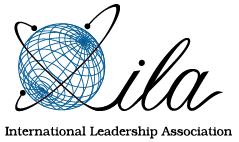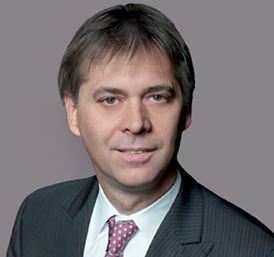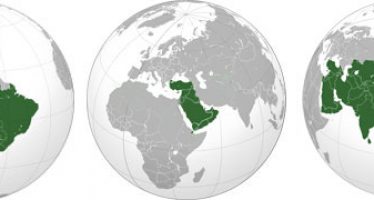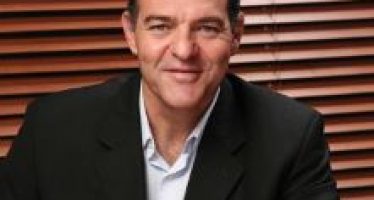Reimaging Leadership Post COVID-19: Dreaming Health, Social and Planetary Equity Into Being
 To achieve a limitless mindset-based leadership, a leader not only needs to be a visionary, a good strategist, focused on executing and delivering results, possess diverse experience and background, and have a reasonable level of technical knowledge, but s/he also needs to possess key personal qualities. An effective leader is constantly and conscientiously acting with high standards of ethics, care, kindness, consideration, and empathy.
To achieve a limitless mindset-based leadership, a leader not only needs to be a visionary, a good strategist, focused on executing and delivering results, possess diverse experience and background, and have a reasonable level of technical knowledge, but s/he also needs to possess key personal qualities. An effective leader is constantly and conscientiously acting with high standards of ethics, care, kindness, consideration, and empathy.
To navigate the current pandemic, we need leadership that supports science-based decision making and leverages the best in all of us. This requires fostering trust and care and appropriate governance. In environments with generalised flawed leadership, lacking appropriate oversight and “checks and balances,” employees and populations are limited in the actions they can take, most of which are ineffectual.
“The greatest threat to positive societal reset is not the challenges of the present but a stagnant mindset of impossibility; and our perceived limits of what is possible, a major stumbling block in attempting a societal reset, need to be confronted.”
– Tolu Oni [1]
Jacinda Ardern has proven to be an effective leader, operating in a country with solid governance. With New Zealand declaring a current win against the virus on April 25, 2020, the country is set to start lifting restrictions on movement. Ardern has been effective at communicating with her constituents to ensure predictability and understanding, while never underestimating the threat or the need to sooth societal anxieties. Empathetically concerned with children’s capacity to cope with the crisis, she announced that the Easter Bunny and the Tooth Fairy are considered essential workers. At the same time, she has ensured that effective science testing and monitoring COVID-19 has been driven by fact-based decision making. Her government’s effective measures to curtail the contagious virus have resulted in minimising the numbers of deaths as well as the stress to the healthcare system. New Zealand has leveraged all data using a systems approach to contain the risks related to the pandemic.
Regarding governance, New Zealand has historically had one of the lowest levels of corruption in the world. The 2019 Corruption Perceptions Index ranks the country first out of 180 countries, a placing it also held for seven consecutive years from 2007-2013.
What is needed today is for all leaders to reimage how to value and promote health equity in our policies, eliminate environmental factors that promote zoonoses (diseases jumping from wild animals to human hosts), and design economies that do not ask us to reopen businesses while sacrificing the health of the most vulnerable. Professor Tolu Oni (2020) asks the following questions in her recent article on COVID-19 induced re-imagination:
- What if contribution to health became the primary performance indicator of urban infrastructure development?
- What if incentives such as tax breaks were aligned with disease burden attributable to manufacturing, transport and trade?
- What if a surge of impact investment deployed post-pandemic prioritised health goals over short term returns? (Tolu Oni, 2020)
Oni (2020) goes on to discuss the need to face the paradoxes of conflicting paradigms of economy, ecology, and health. How do we privilege systems that consider health and the environment at the same level as the economy? If we are to successfully rethink our economies, and our educational, and environmental policies for an interconnected world where planetary health is important, we need to value natural capital and all the benefits we get from nature. We need to ensure that the financial costs and rewards related to caring for humanity are linked to our interdependence with all life forms on earth, not divided by borders and differing GDPs that viruses mock. We need to find a way to solve the practical challenges we face today while imagining a tomorrow that is not dualistic but embraces ecology, health, and economy in a oneness we cannot yet imagine.
Why ethics, care, and kindness are crucial for achieving effective leadership
Effective leadership for humanity needs to factor in how kind we are to the planet. To change how we relate to the planet, we need to change our priorities. We need to change whose interests we put first. In this new world order, shareholders do not come first, clients do not come first, playing politics does not come first, the personal desires and intentions of high-ranking public servants, senior managers, board members or shareholders also do not come first. All stakeholders come first. These stakeholders include all the people who are affected by how our institutions work, such as employees who work in a committed and productive manner towards defined objectives and endorse effective “good person” leaders. We also have to take into consideration how our actions impact the planet, such as how we affect its capacity to regenerate resources essential to all life, how we promote clean air, keep our waterways free of plastics that are killing biodiversity, maintain soils rich in friendly microbial life that promote the flourishing of our food systems, and work with plant root systems to prevent mudslides and flooding.
Only leaders that possess both “hard” and “soft” qualities can embrace the needed limitless mindset to determine the most appropriate objectives and strategies, and guide individuals towards delivering successfully the objectives, satisfying the expectations of all the stakeholders and the needs of populations.
“It is not a crisis of the planet. It is not a crisis of the environment. It is a crisis of humanity. The planet will be there after we are gone, but we won’t be there any more to see it” [2]
If we do not change how we relate to the planet
In the current pandemic health crisis, which has affected the lives of everyone everywhere, the leaders that present acts of consideration and empathy are the most highly appreciated by employees, clients, and populations, positively affecting their performance, commitment, and satisfaction. The public celebration of such leaders’ actions, and the degree of disappointment toward self-serving actions taken by other leaders, are of a magnitude that leads to the following question:
Why are most leaders not effective “good person” leaders?
In both the private sector and in the public sector, the hiring or appointment process of leaders is flawed overall. In addition, the governance that applies to the oversight of the leaders’ actions is also generally defective.
The recruitment and selection process of leaders rarely contemplates the assessment and consideration of the candidates’ personal qualities that are crucial for effective leadership. Furthermore, in many cases the preferred candidates are actually those that are insensitive, unethical, and/or insecure, many of which feel free to take actions for personal benefits, including favors from others with power. How is this possible? The answer is simply that in such cases the hiring or appointment process and the overall governance are also led by defective leaders that lack personal qualities (and normally also the necessary experience and knowledge).
What can be done?
In his 2019 book, Trailblazer: The Power of Business as the Greatest Platform for Change, Marc Beniof, CEO of Salesforce, states: “The tough times are when values and culture matter most.” During this crisis, Salesforces and its Ohana – its deep-seated support system – has demonstrated this belief by caring for the homeless and working hard to increase healthcare system’s access to PPE.
What we need today are more leaders that not only focus on strategy and profit but genuinely live and scale values and cultures that bring health, the environment, and the planet to the center of all they do. The planet urgently needs all leaders to become values centered. We need leaders focused on sustainability of natural resources and care for people. We therefore encourage organisations and governments to identify what are the most important aspirational ethical shared values of their stakeholders and work to embed these in all their daily activities. We appeal to all institutions to consistently apply these to measure character not just competence. These values need to become foundational to all hiring, appointment, development, compensation, and oversight. With this process, we will consciously and dependably nurture leadership for Good and promote leaders that empower over those that hoard power. Only then will we be able to heal ourselves and the wounding of Mother Nature.
[1] Tolu Oni (2020). Coronavirus (COVID-19)-induced re-imagination: 7 things we knew, but “could do nothing about”…until we could…and did Source
[2] Andre Hoffmann (2017). Quote from Introducing the Hoffmann Centre for Sustainable Resource Economy:
This work was originally published in “Leadership for the Greater Good: Reflections on the 2020 Pandemic,” a blog published by the International Leadership Association (www.ila-net.org).

About the Authors

Author: Éliane Ubalijoro PhD
Éliane Ubalijoro PhD is the Deputy Executive Director for Programs at Global Open Data in Agriculture and Nutrition (GODAN). She is a fellow of the African Academy of Sciences. She is a member of Rwanda’s Presidential Advisory Council and National Council for Science and Technology. Eliane has been an advisor for six cohorts of McGill’s International Master’s in Health Leadership. She is on the Board of the International Leadership Association.

Author: Christian Novak
Christian Novak is a Professor of Practice at McGill University – Institute for the Study of International Development (ISID), where his work focuses on development financing. Christian is also Managing Partner of FMA – Frontier Markets Advisors, a Canadian firm that provides advisory services to organisations involved in development financing and impact investing. His previous experience includes senior leadership roles in investment banks and in a regional development finance institution.
You may have an interest in also reading…
2012 CFI Top 100 Emerging Markets Companies’ Nominations
The 2011 CFI Top 100 Emerging Market Companies were compiled by using the nominations and the votes from CFI’s subscriber
PwC Study: High Demand for Quality Infrastructure in Emerging Markets
Relentless urbanisation is driving increased demand for higher quality, more affordable and greener urban infrastructure in emerging and developed markets.
Playing to Win or Playing to Survive? Urbanisation and the Knowledge Economy
It is no surprise that cities around the world have been expanding over the last few decades. The pace of


















































































